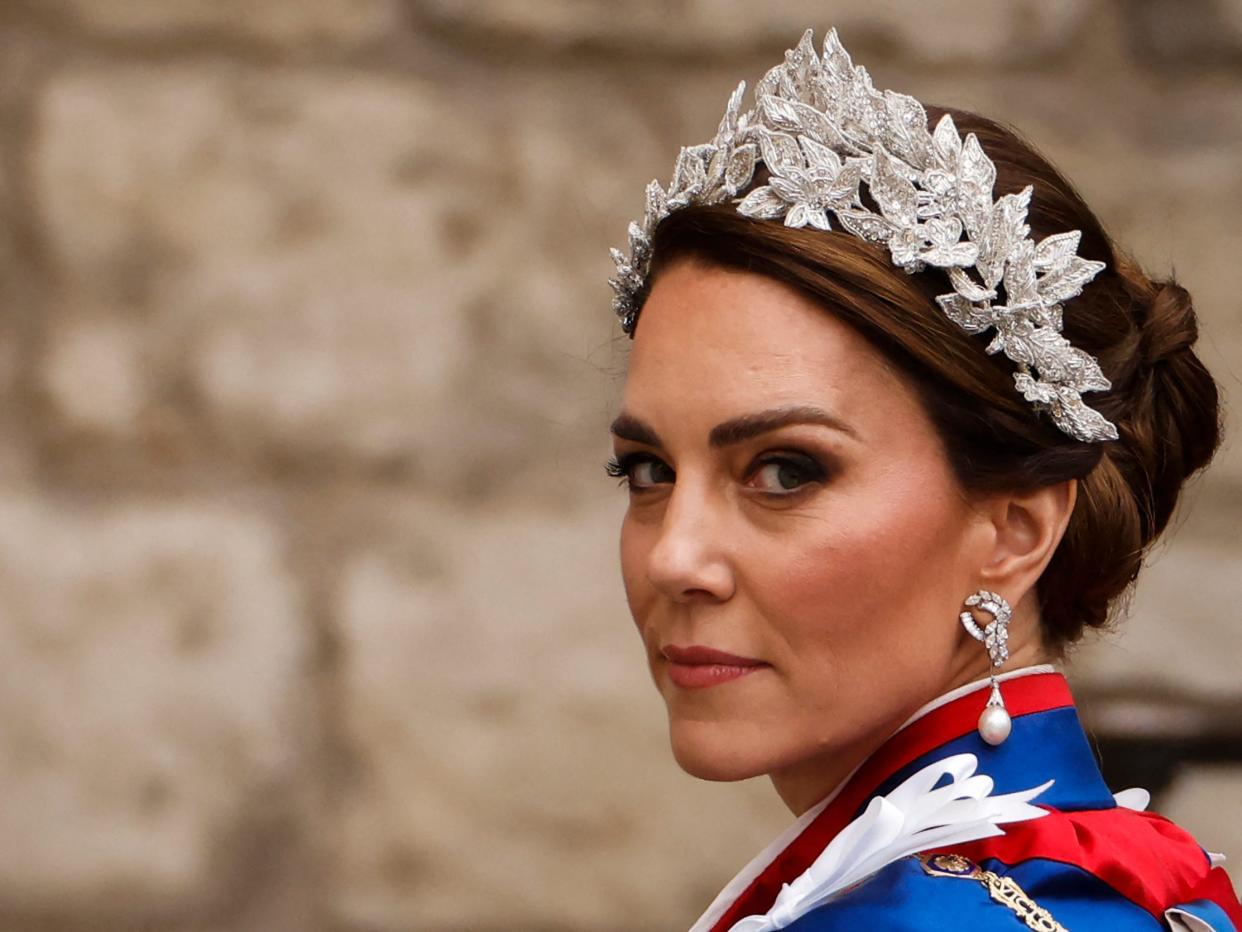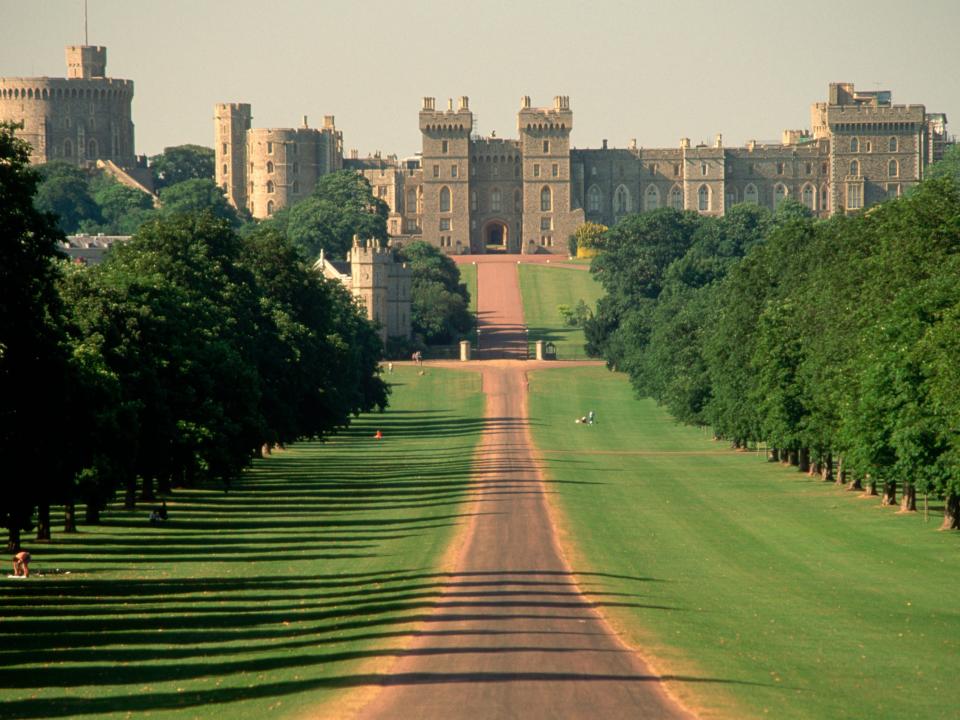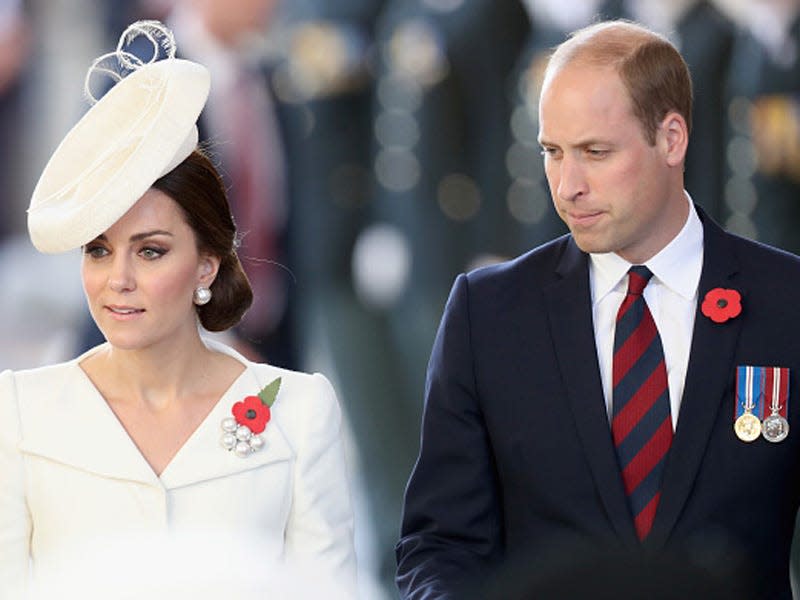Britain's royal family should follow the lead of major CEOs when it comes to transparency, says expert

Kate Middleton's photo editing saga has sparked a debate about the royal family's transparency.
The royals are exempt from UK freedom of information laws, keeping personal details undisclosed.
Commentators suggest the monarchy should behave more like a business.
Kate Middleton's photo editing scandal has ignited a wider conversation about the royal family and whether it should be held to the same standard of openness as CEOs.
The royal household is exempt from freedom of information laws in the UK since it isn't a public authority. This means details about the family's health, private assets, and wills are not usually disclosed to the public.
But there's no denying that the work of the royal family directly affects the UK economy. One recent estimate by Brand Finance suggested they could make £958 million during the 2023-24 financial year.

Tourism is a major factor. Windsor Castle and Frogmore House welcomed just under 1.1 million visitors during the 2022-23 financial year, according to data gathering platform Statista. And Reuters reported that tens of thousands of people visited London for the king's coronation in May.
"In some senses, the latest uproar underscores the value of the royal brand, which helps lure millions of tourists to Britain every year," George Hay, an associate editor at Reuters, wrote on Wednesday.
Hay suggested that the monarchy should follow the lead of major companies that have been transparent when a CEO becomes unwell.
One recent example is C.S. Venkatakrishnan, group chief executive of Barclays, who was diagnosed with non-hodgkin lymphoma in November 2022. The bank promptly released a statement confirming the details of his condition, how it would affect his daily routine, and a subsequent update on his recovery.
In 2020, JP Morgan Chase informed staff when CEO Jamie Dimon was admitted to the hospital for emergency heart surgery, CNBC reported at the time.
António Horta-Osório, former group chief executive of Lloyds Banking Group, took a temporary leave from his position in 2011 due to illness, the bank said at the time. Speaking to BBC News in 2020, Horta-Osório said he had been dealing with poor mental health and exhaustion.
"The monarchy may not be a company, but maybe it should think more like one," Hay said.
Shrouded in secrecy
Kate spent more than two months away from the public eye after receiving planned abdominal surgery in January. While Kensington Palace was clear that it wouldn't provide a "running commentary" on the princess' well-being, that didn't stop conspiracy theories on her whereabouts.
Then, when Kate admitted to editing a photo that had been recalled by several agencies over concerns it had been manipulated, the situation only got worse.

During an appearance on BBC Radio 4's "The Media Show," Phil Chetwynd, global news director of the photo agency AFP, said the palace was no longer considered a trusted source. Meanwhile, CNN said it was reviewing all Kensington Palace handouts in light of the incident.
It couldn't have come during a more chaotic time for the royals.
Buckingham Palace announced in January that King Charles had cancer, but it wouldn't disclose the type of cancer or what stage, leading to speculation over the king's health and the future of his role.
The monarchy should treat the public like its stakeholders
The strategy of transparency is essential for a company's survival. When a business' stakeholders aren't happy, it usually fails. And the same goes for monarchies.

There have been calls in recent years for the UK to follow the lead of Greece and Bulgaria, which abolished their respective monarchies after public referendums. Recent polls, including a poll commissioned by YouGov and Republic, the UK's anti-monarchy group, suggest that support for the monarchy is lower among young people.
In the YouGov and Republic poll, half of the British adults between the ages of 18 and 24 said they would prefer an elected head of state to a monarch.
Republic has launched a campaign to end royal secrecy, focusing on the Freedom of Information Act. Anyone in the UK can request information from publicly-owned companies and government departments, but not the monarchy since it isn't a business or a branch of government.
The group's CEO, Graham Smith, told Business Insider that Kate's lengthy absence and subsequent photo scandal "throws a spotlight on the culture of secrecy" within the royal institution.
"It highlighted what a lot of people have known. This is not an institution that is known for its openness and honesty," he said.
"They will always maintain they have the right to keep health issues private," Jack Royston, a royal commentator, told BI.
"However, the big issue here for them is that their secrecy has made the situation so much worse and it's now at a point where the doctored photo scandal has destroyed Kensington Palace's reputation as a trusted source," he said.
"The palace needs to realize that principles that they hold dear often go completely over the heads of ordinary people," Royston said.
He added that the palace's allies in government and the freedom of information exemption "cannot save them if the public mood turns against them."
Buckingham Palace declined to comment. Kensington Palace did not immediately respond to a request for comment.
Read the original article on Business Insider

 Yahoo News
Yahoo News 
